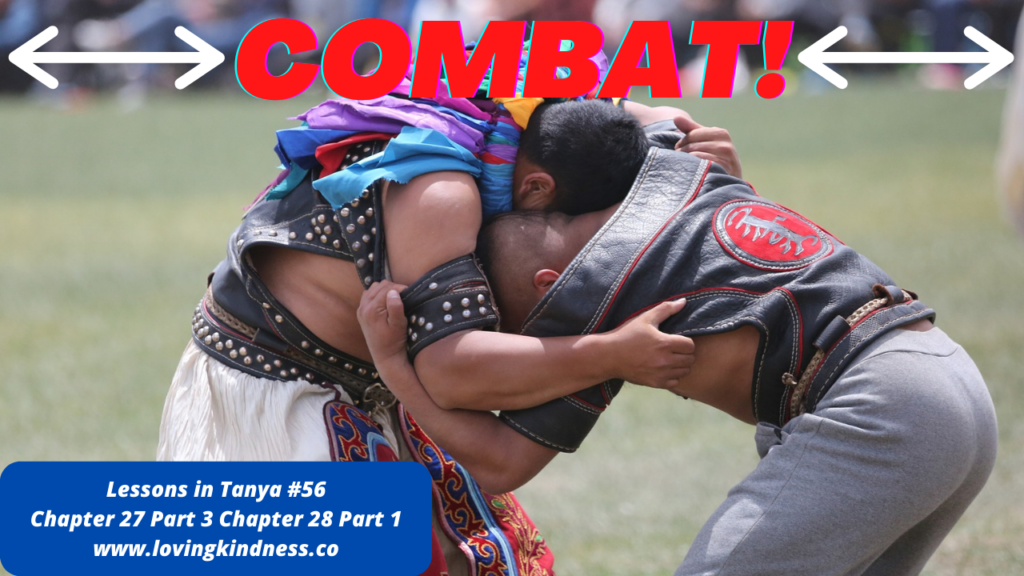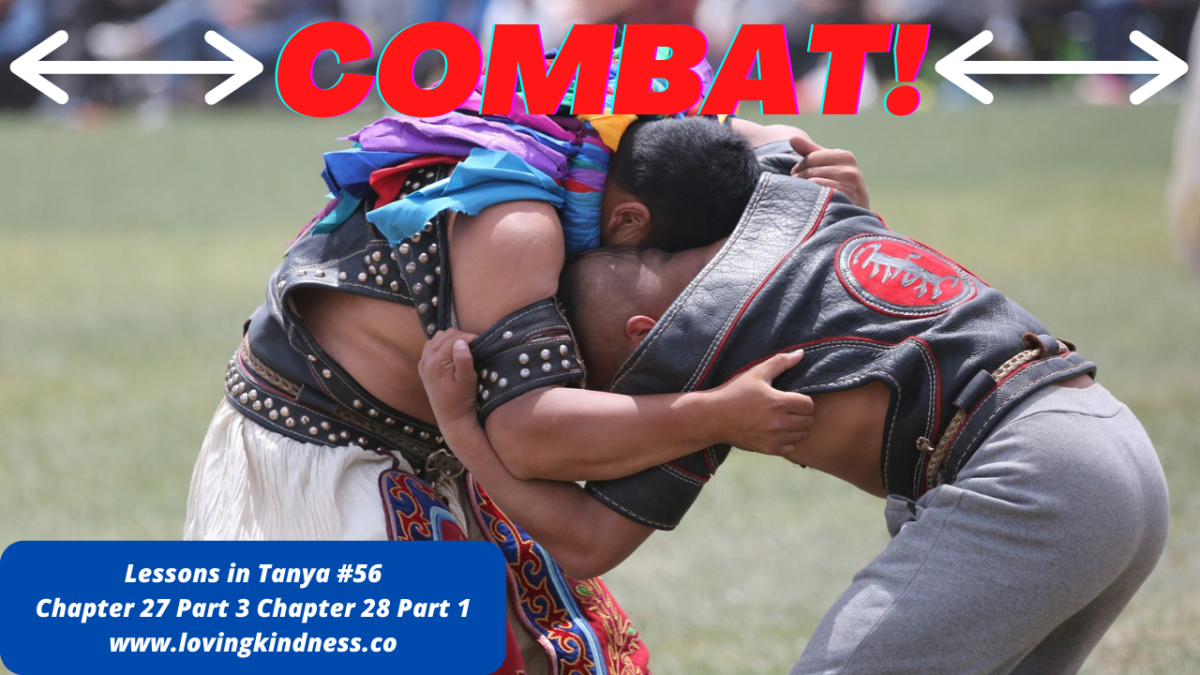
We conclude chapter 27 – the middle chapter of a series of three chapters dealing with concepts of overcoming depression and dealing with unwanted sinful thoughts. These thoughts can come to one when involved in mundane work affairs, and they can also come to one when one is involved in one’s service to God (praying for example.)
In addition to dealing with evil when it comes to actual evil – and the duty of the Beinoini being to push it away when such thoughts disturb one, there is another type of “evil” one can learn to subjugate. Really it deals with permitted things. These are not in and of themselves forbidden like real evil, but they do awaken the evil inclination and the animal soul to engage in them. Eating is an example – whereby though the food is permitted, one can still subjugate one’s animal soul by leaving aside a small piece of food that one really wishes to eat.
In the last part of our chapter we deal with another type of permitted matter which one should learn to subjugate too. This is the mouth and in speaking unnecessary things – even though they be permitted. When one does this, one subjugates one’s animal soul further (even though – again – these things might be of a permissible nature.) The fact that they are permitted does not mean one should immerse oneself in them. One should still learn to separate from them as much as possible – sanctifying the permissible.
If one sanctifies oneself here “VeHiskadishtem” – down in this world below – then we have a rule, that in return for this, God will sanctify ourselves from Above. One who sanctifies himself below a little is sanctified a lot – from Above.
In addition, one fulfills the actual Mitzvah of sanctifying oneself. And in a certain respect, it is not just a Mitzvah but a promise. One who goes about sanctifying oneself below will merit the reward of becoming holy in this world.
CHAPTER 28
This chapter introduces to us to a a follow on from the previous chapter. Whereas we had discussed the problem of bad thoughts intruding upon our lives when engaged in material matters, our new chapter deals with the problems of thoughts that disturb us at the time of prayer.
Just when we begin to pray, all of a sudden, all sorts of bad thoughts enter our mind. These thoughts may even make us think that there is something wrong with us – because if we were better and more pure, such thoughts would certainly not enter our minds.
The Alter Rebbe tells us not to be concerned about these thoughts. Not – of course – that we should think they are okay (because they are not) but because they are not of our own doing. These are the thoughts of the Sitra Achra (the Other Side) that come to disturb us from our holy task of praying to God.
Only the Tzaddikim have no such thoughts – as they are engaged in true holiness. The Beinoni on the other hand is always faced with this battle and is therefore plagued with these negative thoughts during the time of prayer.
The Beinoni however must deal with these thoughts on his own level. Even though the Tzaddik is able to deal with the mystical matters involved with causing the Midot to ascend to their rightful places of holiness, the Beinoni must suffice for simply pushing aside the evil thoughts that bother him during his prayers.
The Beinoni must be aware that it is the nature of fighters – such as wrestlers, that when the one wrestler has the upper hand, the other will fight even harder in order to win the fight. The fact that the other tries to win with such strength is a sign that the other is fighting with a tremendous strength himself. So too, when these negative thoughts enter his mind, he should not feel bad, but on the contrary realise that the reason for the negative is because the good in him is strong that it has elicited the evil to fight against him even harder!


